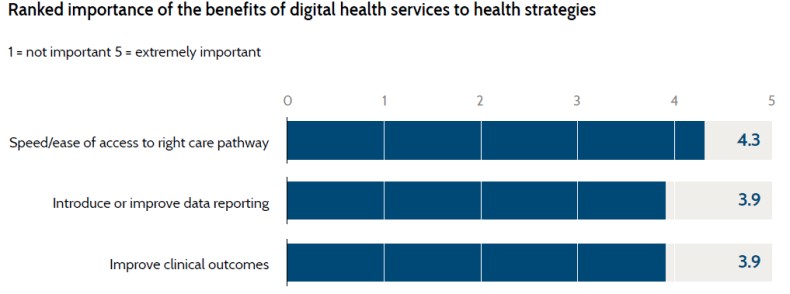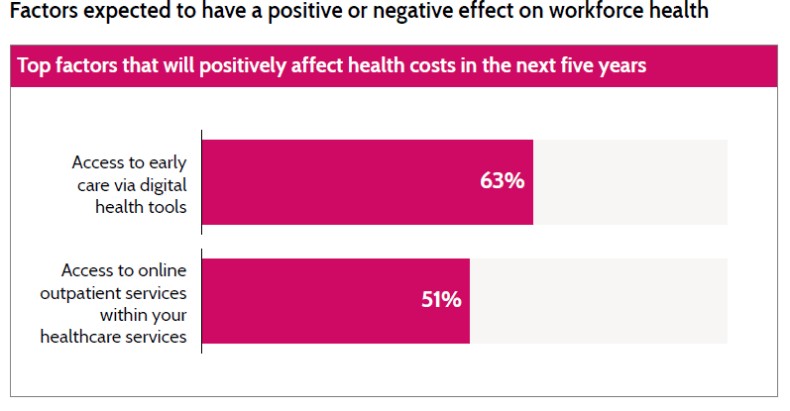Digital health tools central to employers’ future health and wellbeing strategies
The rise of digital healthcare services, such as virtual consultations with GPs and online therapies, is transforming how employees access medical support, providing a more cost-effective and sustainable solution.
Such services can work alongside the NHS to ease the burden on public services. REBA’s Health and Wellbeing Research 2025, published together with AXA Health, found that difficulties and delays in accessing healthcare are expected to have the most significant negative effect on workforce health over the next five years.
Digital tools and services will play a crucial role in providing easier and more timely interventions for employees, while also driving savings for employers by more effectively moving workers onto the best treatment pathway.
These advantages link directly to employers’ ambition to provide greater preventative health measures – getting workers the right treatment, fast, is a vital business-linked HR objective.

Digital tools remove barriers to care across the workforce
Improving the inclusivity and accessibility of healthcare benefits through the use of digital tools can remove barriers to care, ensuring that employees can access the support they need.
This can help employers to more effectively meet DEI and environmental, social and governance (ESG) objectives – something which is increasingly important, given that only a little over half of employers (54%) agree that their health benefits align with employees’ needs.
A more personalised approach of digital health tools also means that treatments are tailored to the given situation of each individual on that pathway.
The virtual health records that come with digital health tools can further enhance this personalisation, enabling medical professionals to access a comprehensive view of an employee’s medical history to provide more targeted care pathways. This can help to facilitate better-informed care decisions, improving clinical outcomes and overall efficiency.
Employers expect poor access to NHS care to have the biggest negative impact on workforce health in the next five years. Digital health tools and services offer an effective solution.
By integrating these digital offerings into benefits programmes, employers can enhance both accessibility and effectiveness. This not only improves employee wellbeing but also supports retention, engagement and long-term workforce sustainability, ensuring that healthcare provision remains relevant and responsive to evolving workforce needs.

Strategic interventions are shifting the dial
REBA’s Health and Wellbeing Research 2025 highlights three key factors that are steering employers’ health and wellbeing strategies:
1. Many employees find it challenging to quickly access NHS clinical care, which is influencing employers’ approach to health and wellbeing.
2. The rapid expansion of digital health services, both in public and private healthcare, are helping to improve access and speed of treatment, as well as provide greater personalisation.
3. Discussion and actions focusing on prevention are on the rise to mitigate people risks such as the ageing workforce and an increase in chronic conditions.
Together these shifts set the scene for how organisations will use awareness, education and behaviour change to reduce future ill-health claims and mitigate rising costs. Download the report for more insights.






